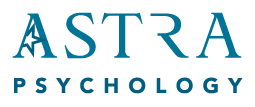Recovery as an Approach to Therapy

There has been a lot of talk lately about the recovery “model”, in the NDIS and elsewhere. It is a model or approach that is not often taught to clinicians as part of their training. However, it is an approach or philosophy that is well known by, and applied within, Astra Psychology. (We’d prefer not to call it a “model” as such for the reasons expressed here.)
What is Recovery?
There are many definitions of recovery.
At its heart, recovery involves the person with a mental health or other condition:
- Recognising that they are more than the symptoms of the condition
- Identifying what has meaning to them in their lives
- Recognising that they have qualities and strengths that assist them, and will assist them in the future, to achieve whatever is important to them.
The application of the recovery approach by service providers, including psychologists, involves working / walking alongside the individual to help them and to enable them to help themselves. It is goal directed, allowing the individual to achieve what is meaningful to them, using their strengths and resources to overcome any barriers, and to achieve what they want to achieve.
The focus is not on getting rid, entirely, of the symptoms of the condition. Instead, the focus is on learning to manage and live a full and productive life, whilst living with the condition.
Goal-Based
Applying the recovery philosophy or approach necessarily involves adopting a goal-based approach to therapy. It involves working with the client and, by consent, their supports, to identify a meaningful and attainable goal that the client wishes to achieve. Importantly, goals are set by clients, not by others.
An Holistic Approach
When we work with people using a recovery-based approach, we see the whole person, with all their hopes, dreams, concerns, and frustrations. The client is regarded as more than a collection of symptoms or issues. Their attributes and interests are recognised. All aspects of the individual are considered, including their mental health, physical health, sexual health, sense of identity, social connectedness, interests, family, employment, education, spirituality, aspirations.
Recovery as a Journey
The literature often describes recovery as a journey and sometimes a journey of discovery. It is a process or pathway of flourishing. It involves the successful participation and involvement in the community by the person, in a manner of their choosing.
Recovery as an Approach to Therapy
The recovery approach underpins the particular method of therapy that is delivered. It is not, of itself, a type of intervention. It is not a form of treatment, in the same way as acceptance and commitment therapy, schema therapy or cognitive behaviour therapy are forms of treatment. Rather, the recovery approach underpins or directs the way therapy is provided. It is through an orientation towards recovery that work is conducted by the psychologist, and others, with the client.
Through a recovery-based approach, therapy is delivered which is: –
- hopeful
- focused on the future
- empowering
- person-centred
- respectful
Recovery-Oriented CBT
Astra Psychology applies recovery-oriented CBT.
When working with people in therapy, what works is the pursuit of purpose.
Recovery-oriented cognitive behavioural therapy was developed by Aaron Beck and others to apply evidence-based CBT within the framework of recovery. It helps people find and pursue purpose. It helps individuals to identify their best self, develop it, and live their purpose every day. It focuses on what matters to individuals and places mental health issues in the context of the lives they want to live. It meets them where they are, even if they have difficulties accessing motivation. It is an approach that has evidence in its favour; see below under resources.
Recovery-oriented CBT is applicable to all clients; however, it is especially applicable to clients living with significant mental illness.
Resources
We set out below some resources for further information about the recovery model generally and recovery-oriented CBT.
What is a recovery-oriented approach? At a glance.
What is Recovery-Oriented Cognitive Therapy?
